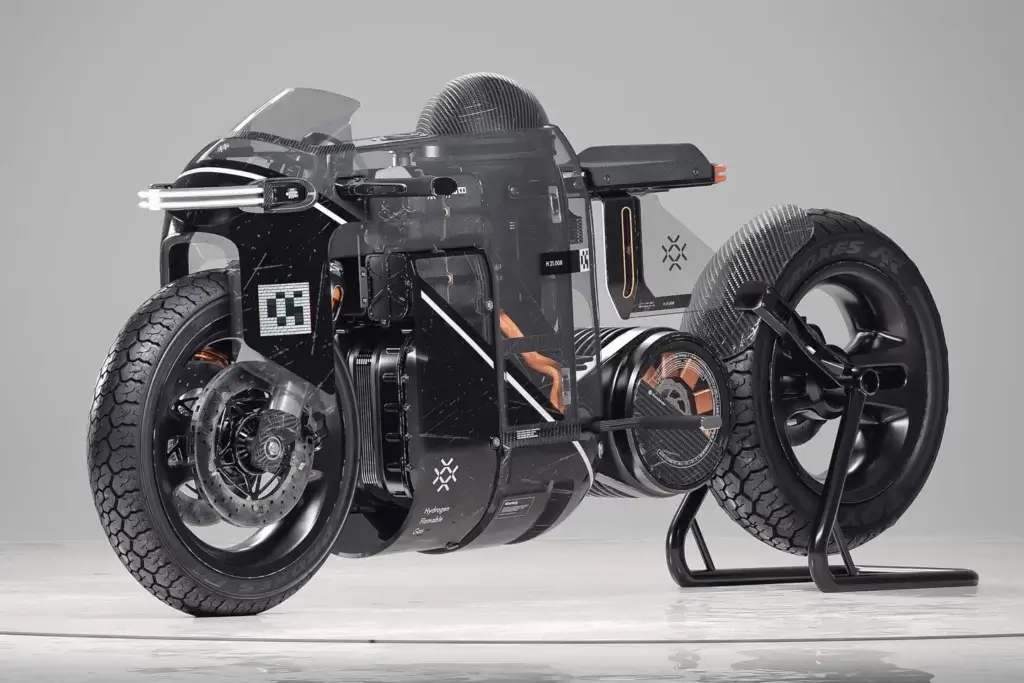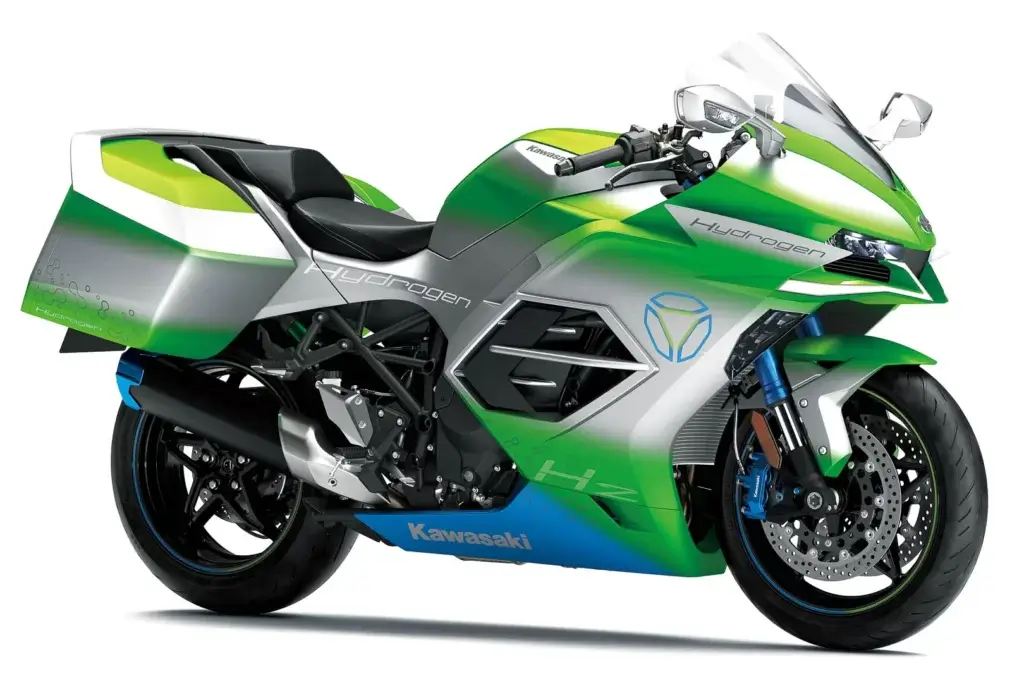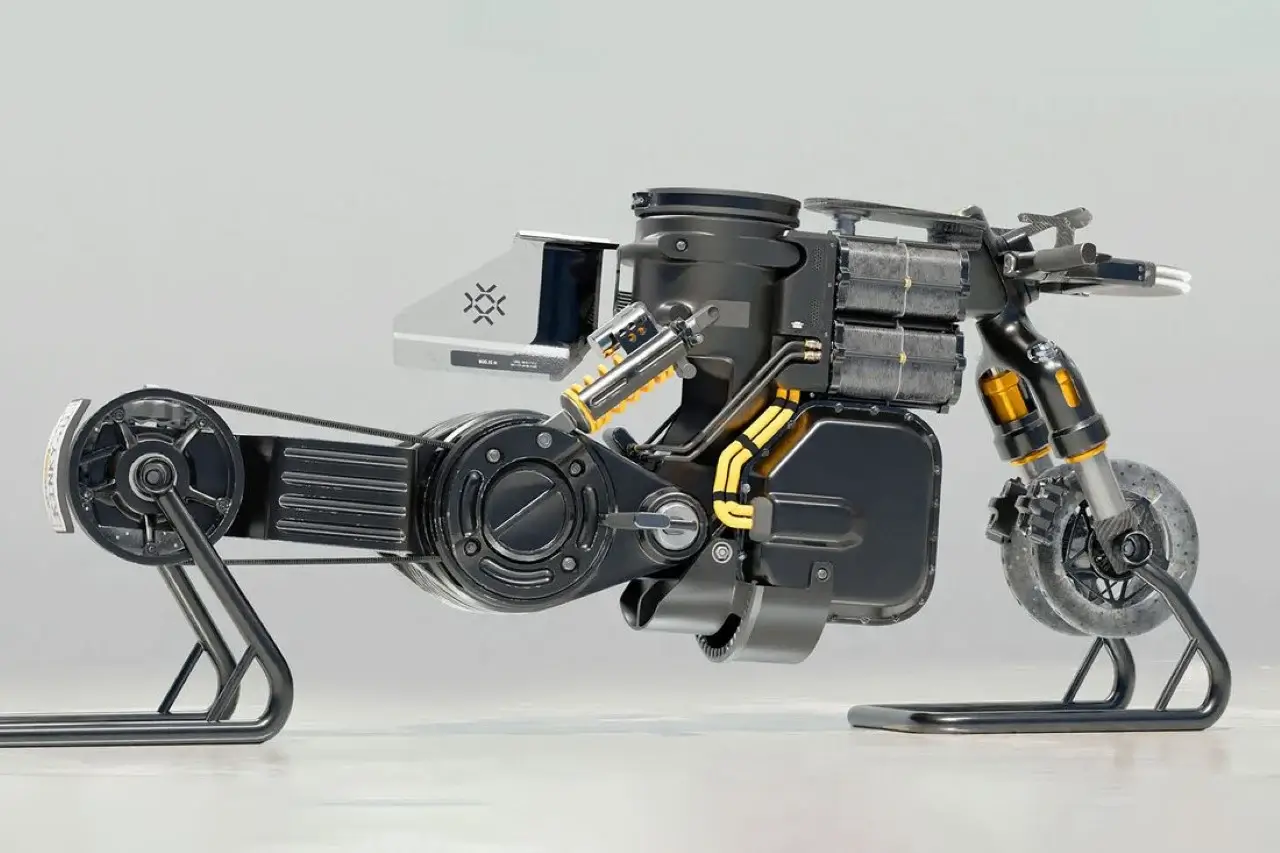In a world where environmental concerns and the pursuit of sustainable energy solutions are at the forefront of innovation, hydrogen-powered motorcycles are emerging as a potential game-changer in the realm of two-wheel transportation. These pioneering machines rely on hydrogen as a clean and efficient fuel source, offering a glimpse into a future where motorcycles seamlessly blend eco-friendliness with high-performance capabilities. In this comprehensive exploration, we will delve into the inner workings of hydrogen-powered motorcycles, chart the remarkable advancements they have seen over the years, and illuminate the promising landscape of the next generations of these revolutionary engines.

The Core Technology: How Hydrogen-Powered Motorcycles Work
At the heart of every hydrogen-powered motorcycle lies a hydrogen fuel cell, a sophisticated piece of technology that transforms hydrogen gas into electricity to drive an electric motor. This intricate process unfolds in a series of well-orchestrated steps:
Hydrogen Storage: These motorcycles store hydrogen in specially designed onboard tanks, often in gaseous or cryogenic liquid form. These storage methods are engineered to maximize the amount of hydrogen carried on the motorcycle while ensuring utmost safety.
Hydrogen Supply: Hydrogen is supplied to the fuel cell, where it enters into a chemical dance with oxygen sourced from the ambient air. This dynamic reaction takes place within the fuel cell’s membrane-electrode assembly, setting the stage for power generation.
Electrochemical Reaction: Inside the fuel cell, hydrogen molecules undergo a transformative process. They split into protons and electrons at the anode. While protons embark on a journey through the electrolyte membrane to reach the cathode, electrons are forced to traverse an external circuit, thus creating a robust electric current.
Electric Motor Drive: The electric current generated by the fuel cell is harnessed to power an electric motor, propelling the motorcycle forward with remarkable efficiency. It is essential to note that this entire process produces zero harmful emissions—only water vapor emerges as a benign byproduct.
Energy Regeneration: Some advanced hydrogen motorcycles feature regenerative braking systems. These systems capture kinetic energy during deceleration, converting it back into electricity. This reclaimed energy can either recharge the motorcycle’s battery or enhance overall efficiency, further bolstering the bike’s eco-credentials.
The Journey of Advancements
Hydrogen-powered motorcycles have journeyed a significant distance since their inception, marked by transformative advancements that have propelled this technology forward:
- Fuel Cell Efficiency: Early hydrogen fuel cells demonstrated lower efficiency levels, but modern iterations have undergone significant improvements. These enhanced fuel cells translate into extended riding ranges and heightened overall performance.
- Hydrogen Storage Innovations: Innovations in hydrogen storage have enabled motorcycles to carry larger quantities of hydrogen. This has resulted in a more extensive range between refueling stops, rendering these bikes increasingly practical for everyday use.
- Performance Enhancements: Advances in electric motor technology have ushered in remarkable performance enhancements for hydrogen motorcycles. These advancements have catapulted them into direct competition with traditional combustion-engine motorcycles concerning acceleration and top-speed capabilities.
- Refueling Infrastructure Expansion: The development of hydrogen refueling infrastructure is an ongoing endeavor. The emergence of additional refueling stations worldwide is making hydrogen motorcycles more practical and accessible for riders, dispelling concerns about limited availability.
- Cost Reduction: As with any emerging technology, the cost of hydrogen motorcycles is gradually decreasing. This cost reduction is making these innovative vehicles more attainable for a broader spectrum of consumers, paving the way for greater adoption.

The Promising Horizons of Hydrogen-Powered Motorcycles
As we look toward the horizon, several exciting developments await the next generations of hydrogen-powered motorcycle engines:
- Increased Riding Range: Future iterations of hydrogen motorcycles are expected to feature enhanced hydrogen storage technologies. This will empower riders with even longer ranges between refueling stops, making them more suitable for extended journeys.
- Quick Refueling Times: Hydrogen refueling times are poised to decrease, approaching the convenience of filling up a gasoline-powered motorcycle. This reduction in refueling duration will further enhance the appeal of hydrogen motorcycles.
- Wider Availability: The proliferation of hydrogen refueling infrastructure will continue, ensuring that riders have access to refueling stations in a more extensive range of locations. This expanding network will eliminate one of the primary limitations currently associated with hydrogen-powered vehicles.
- Fuel Cell Refinements: Ongoing research and development efforts will continue to boost the efficiency and durability of hydrogen fuel cells. This translates into increased overall performance and longer lifespans for hydrogen motorcycles.
- Eco-Friendly Materials: Future iterations of hydrogen motorcycles may incorporate eco-friendly materials in their construction. These materials will contribute to reducing the environmental footprint of these vehicles, aligning them even more closely with sustainability goals.
- Expanded Model Variety: As the technology matures, riders can anticipate a broader variety of hydrogen-powered motorcycle models. These models will cater to different riding preferences and styles, offering greater diversity in the market.
- Sustainable Hydrogen Production: The production of hydrogen itself is also evolving. An increasing focus on renewable methods, such as electrolysis powered by excess renewable energy, is poised to make the production of hydrogen more sustainable.
Navigating the Road Ahead
While hydrogen-powered motorcycles are still in their early stages of development and adoption, they hold immense promise as a clean, efficient, and innovative alternative to traditional gasoline-powered bikes. As technology continues to advance, the road ahead for hydrogen motorcycles appears increasingly bright. With improved efficiency, extended range, a growing refueling infrastructure, and reduced environmental impact, these eco-friendly two-wheelers are poised to reshape the future of motorcycle riding. They offer not only exhilarating performance but also a cleaner and more sustainable planet to explore. As riders, enthusiasts, and environmental advocates eagerly await the next generation of hydrogen-powered motorcycles, one thing is certain: the journey ahead is paved with thrilling possibilities, all fueled by the limitless potential of hydrogen.

